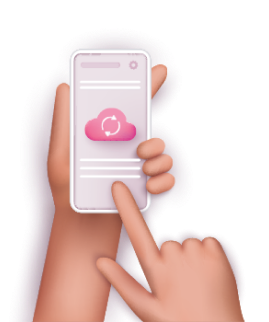Historians and paleontologists are divided on the issue whether dinosaurs did or did not adapt and evolved to be more intelligent.
It’s an oversimplification to label dinosaurs as not intelligent. In fact, some dinosaurs developed into modern birds and some of them are extremely intelligent. For example, the African Grey Parrot, a descended of the surviving dinosaurs seem to have the analog of human intelligence. They can add and subtract and even speak in complete sentences.
Some scientists ascertain that although incredibly instinctual, some dinosaurs would have never evolved into intelligent creatures. The reason is that intelligence is thought to require some sort of environmental contextual awareness. In a static environment where hunting was the name of the game, dinosaurs thrived. But once catastrophic changes impacted the world, some dinosaurs simply did not adjust to the new environment because of their lack of adaptability.
For humans, the development of contextual awareness arguably happened some 20 million years ago, mainly because of climatic change. Emerging primates (early humans) developed intellect adept of contextual analysis to manage chronic food shortages.
In many ways what happened to the dinosaurs is happening today to telcos. The mega-exponential pace of technology, the tremendous availability of data, the onset of 5G, combined with Corona can be considered a modern-day meteor. Ready to wipe out those who are not adapting, changing, evolving.
In the world of telecom and broadband, huge brontosaurus’, agile TRexs’ and lightening quick Raptors are assertively walking the earth, unbeknown that a devastating cataclysm is about to occur.
That evolution is Artificial Intelligence, involves digital technologies and machine intelligence that are increasingly transforming the way we live and work. Faster and more versatile connectivity, together with rampant increase in the availability of data collected and analyzed in real time, offers Telcos/ISPs/CSPs with unprecedented opportunities and challenges to evolve.
According to Valuates Research, “The global Telecommunication market for AI is projected to reach USD $13.4 Billion by 2026, from USD $773 Million in 2019, at a CAGR of 49.8% during 2021-2026. Major factors driving the growth of AI in telecommunication market size are, increasing adoption of AI for various applications in the telecommunication industry. Artificial intelligence is very helpful in improving the performance of the telecommunications network. With artificial intelligence and machine learning aid, the telecommunications network can operate independently and make a qualified decision to minimize the network.”
In the context of the Connected Home, AI empowers providers to capitalize on the massive amount of internet consumption data they gather and helps transform it into insights about home devices, apps, and general quality of internet experience. AI has become central to the telcos’ digital transformation as it allows for the delivery of superior performance and adjusted customer experiences – meeting the ever-growing demands for higher quality services and better Quality of Experience.
In addition, Telcos/ISPs/CSPs are also harnessing the power of AI to process and analyze these huge volumes of data in order to extract actionable insights and provide better customer experience, improve operations, reduce churn and generate new products and services.
AI Is Changing the Telecom Landscape
Less Operational Costs, More Revenue.
The massive amounts of data generated in the telecommunications industry can easily be leveraged and used to reduce operational costs. AI and data can automate, streamline, and personalize customer care. If the customer is not satisfied with the services provided, there is a possibility of them shifting to an alternative service provider. By implementing a right-fit customer self-care services, providers can reduce the costs of inadequate customer services. The appropriate use of AI and subscriber data can improve customer service and improve loyalty, reputation and ultimately generate revenues.
Personalization of Experiences and Services
In today’s digital world, consumer expectations are at an all-time high, and their expectations are not limited to service quality alone. Consumers are demanding personalized experiences every time they connect. Here, Intelligent Virtual Assistants can enable effective and customized customer engagement. As a foundational technology, AI can help telecom reinvent customer relationships through personalized, intelligent, and persistent two-way conversations at scale.
Using Predictive Analytics
Using Predictive Analytics, Telcos/ISPs/CSPs can make efficient and effective business decisions. Some of the major benefits of Predictive Analytics include customer segmentation, customer churn prevention, predicting the lifetime value of the customer, product development, and price optimization.
New Business Opportunities
AI creates various new business opportunities for telecom operators. Some example services are intelligent streaming, personalized customer packages, and so much more.
Today’s Telcos, ISPs/ ICPs are reinventing themselves via AI to adapt to the new landscape. And at the heart of this evolution is customer experience in terms of hyper-personalization, immersive experiences, and better product bundles for both consumers and businesses. And like the dinosaurs, some will evolve with AI, and others will not.





